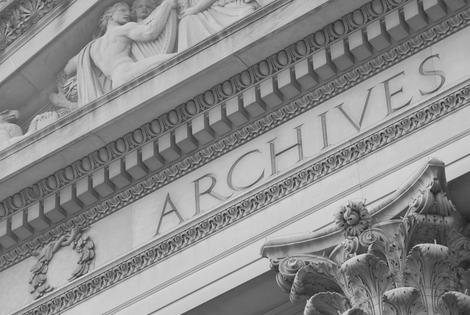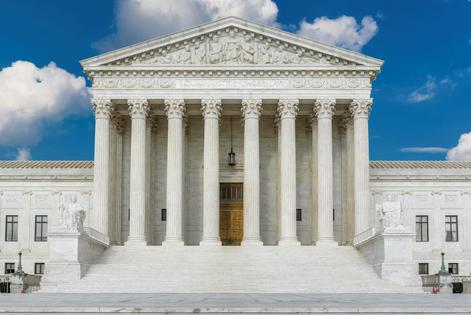1789 or 1866 is not 2024: Why historians have a difficult task in guiding Supreme Court justices as they decide today’s legal issues
Published in Political News
History matters at the U.S. Supreme Court, where most justices either embrace or occasionally rely on a form of interpretation called “originalism,” which holds that the original meaning of the Constitution should be sought, and relied on, to decide cases.
Historians matter at the Supreme Court these days, too.
In recent years, the court has increasingly taken on controversial cases, inserted itself into polarized electoral politics and overturned long-standing precedent, including the federal right to abortion.
This judicial aggressiveness, coupled with most justices’ championing of originalism, has thrust professional historians into the workings of the court, as well as into the public eye.
That’s because lawyers, advocacy groups and think tanks have been soliciting historians’ expertise on the history underlying certain cases.
New opportunities have arisen for historians to play a role in court cases, including the Brennan Center for Justice’s recently established Historians Council on the Constitution and consulting jobs for historians whose research intersects with hot-button political issues such as gun rights.
But the new relevance of historians has also raised fundamental questions about the role of history, and of historians themselves, in guiding the present.
When a particular conclusion is sought by lawyers, activists or politicians, does this expectation affect the way historians approach their research? How can historians meet the political demands of this moment without oversimplifying their research or tailoring their conclusions to respond to current legal arguments – skewing their analysis in the process?
As a historian of 19th-century U.S. history and a program manager in the Office of Public Scholarship and Engagement at the University of California, Davis, I find the public demand for historians’ takes on these issues intriguing and exciting.
Yet this “history-for-hire” approach can complicate the incentives of historical inquiry.
For decades, historians have been writing amicus briefs, also known as “friend of the court” briefs, which are advisory documents submitted to the court by outside parties.
But the emphasis of this court on deciding cases by interpreting the original meaning of the Constitution, including recently relying on the original intent of the Second Amendment and Fourteenth Amendment, has brought more historians out of the shadows – and archives – to publicly contribute to the debates.
Some historians are getting broad media coverage, including Harvard scholar Jill Lepore and Yale scholar David Blight. They could be heard in a Jan. 31, 2024, interview on NPR highlighting their friend-of-the-court brief in the case that challenged Donald Trump’s presence on the Colorado ballot because he had engaged in insurrection. Lepore and Blight used their amicus brief to delve into the historical intent of Section 3 of the Fourteenth Amendment.
Contributing to the public discussion is part of the role of historians and arguably maintains their field’s relevance. The American Historical Association, the leading professional organization for historians, offers advocacy tips on its website that provide strategies for weighing in on public issues.
But when advocacy comes to mean applying historical research methods to high-stakes legal decisions, some historians can feel like they are venturing outside of their field and into the less familiar realm of legal argument.
Gregory Downs, department chair and professor of history at the University of California, Davis, and a recent appointee to the Brennan Center’s Historians Council on the Constitution, says that historians’ methods can sometimes feel out of step with the methods and operations of the court.
While historians contextualize history to better understand the many differences between eras of the past, lawyers look for direct analogies between the past and present that can help illuminate their case. This can lead to oversimplifications. As Downs puts it, “Any argument that makes a direct analogy between a present moment and 1866 is inherently ahistorical.”
In addition, while historians approach a historical question without a preconceived conclusion, lawyers approach a case knowing they are supporting one side or the other.
The very avenues available for historians to contribute to these legal debates – amicus briefs – already shape historians’ argument into a series of responses to the legal questions of the case, instead of allowing for an open historical inquiry. While it is possible for a scholar to submit an amicus brief in support of neither side in a case, in general, historians are asked to provide historical reinforcement for only one side in these cases.
As Downs says: “Amicus briefs start from a premise that they are supporting one side or another … the court’s eventually going to have to decide.” At the Supreme Court, he says, “They are upholding or overturning a prior ruling, so they are in a binary outcome, and this is why the briefs can end up with a binary outcome.”
This approach stands contrary to historians’ impulse to highlight the complexity in history. Historians have a difficult time narrowing the many events and perspectives of history down to one side or the other.
Instead, historians’ strengths lie in placing historical records in context and using historical events or individuals as a starting point to tell a coherent story of the past. These stories can evolve, expand or shift as new evidence and perspectives are uncovered and integrated into historical narratives.
The aim of historical research is not to convince a present-day jury or judge of a specific predetermined conclusion, but rather to collect evidence, explore diverse interpretations and challenge unprovable narratives about the past.
As Downs says, “The balancing act for historians is, how do we stay as true as we can” to these complexities and also “figure out if there is enough applicability – in our subjective judgment – to write a brief that still aims to be useful.”
“You could write a brief that says ‘everything is very complicated,’” he says, “but then there is no utility.”
The current court majority champions the notion that the original intent of the Constitution should be conclusive in settling the pressing legal issues of today.
Yet historians see not just one intent in that document, but many “intents” expressed – and suppressed – throughout American society during the drafting of the Constitution and its amendments.
Which intent to settle on as authoritative is usually a political or judicial question, not a question asked by historians. The inherent complexity of history can undermine the search for clear and decisive jurisprudence.
Furthermore, in recent decades, history as a discipline has expanded its focus to include voices that were traditionally left out of authoritative histories. These include the voices of people of color and women, who were barred from providing input into the drafting of the Constitution. How should a court take into consideration the expansion of historical perspectives?
Perhaps because of this difficulty in parsing the most appropriate historical perspective to apply to a legal case, sometimes the historical narratives are simply overlooked by the Supreme Court.
This happened in the March 2024 decision in the case that determined Trump’s inclusion on the Colorado ballot.
Despite multiple amicus briefs submitted by historians who found historical evidence to justify removing Trump from the Colorado ballot under Section 3 of the Fourteenth Amendment, the justices’ unanimous opinion did not reference this historical context. History was largely ignored, as were the historians.
As originalism retains its influence in the Supreme Court, historians will likely continue to explore new opportunities to contribute to court cases. Historians are trying to meet this moment, but questions remain whether their research will be found useful in the adversarial environment of courts, and whether their analyses will have a meaningful effect on court decisions.
This article is republished from The Conversation, a nonprofit, independent news organization bringing you facts and trustworthy analysis to help you make sense of our complex world. It was written by: Amy Hart, University of California, Davis
Read more:
More than 78 ‘friends’ of the Supreme Court offer advice on the 14th Amendment and Trump’s eligibility
South Carolina’s execution by firing squad: The last reenactment of the Civil War?
Supreme Court’s selective reading of US history ignored 19th-century women’s support for ‘voluntary motherhood’
Amy Hart does not work for, consult, own shares in or receive funding from any company or organization that would benefit from this article, and has disclosed no relevant affiliations beyond their academic appointment.


























































Comments